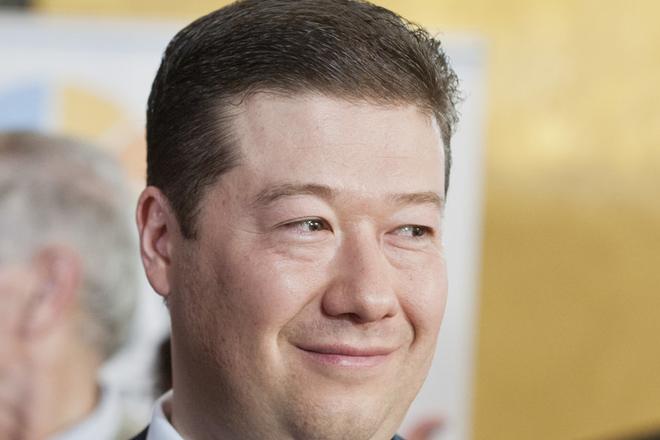The case Čapí Hnízdo / Stork Nest – the abuse of EU funds by ex-deputy prime minister and favourite in the election race, Andrej Babiš, for his holiday resort within a dubious subsidy – appeared as ordered by the establishment to harm Babiš. The Czech Republic again received refugees and media hid it, while Tomio Okamura would be elected even by non-existent people.
The Czech election campaign was influenced by hoaxes and disinformation. The hoaxes won hundreds of fans for some of the candidates or were used by some candidates as arguments in political statements.
Millions of refugees in villages
Out of a total of 256 statements of Tomio Okamura, chairman of the Svoboda a Přímá Demokracie (Freedom and Direct Democracy, SPD) party, the demagog.cz website deemed 68 statements untrue and 49 misleading.
In fact, Okamura is famous for spreading hoaxes on social networks. In his campaign, he used also the famous ship full of refugees (which in fact dates back to 1991), as well as the false quotation of popular Czech actor and director Jan Werich on Muslims.
The SPD party, which got 10.6 percent in the general election, wants to ban Islam in the Czech Republic, limit migration and leave the European Union.
Roman Máca of the Evropské Hodnoty (European Values) think-tank also claims that disinformation had an impact on the party’s election result. “It definitely contributed to a good result, although these items of information primarily only got to people who already are convinced voters,” the analyst told Sme.
SPD has managed to create a kind of information ghetto in the social websites, to which it is hard to gain access, as criticism or questioning are immediately deleted, and critical users blocked.
His voters – maybe I am exaggerating – really believe that a million refugees in burqas are heading to their small village…”“
“These people get into a totally different reality than those following traditional media; and they vote accordingly,” Máca says. “His voters – maybe I am exaggerating – really believe that a million refugees in burqas are heading to their small village…” He was following the way that Okamura was helped by this disinformation on the blog on the idnes.cz website.
During the campaign, Okamura was adding critical videos warning they would surely be banned and deleted, although his campaign promo videos were broadcast by the state Czech Television, in compliance with the law. His party colleague Radek Koten form the region of Vysočina helped spread and expand the hoax on dangerous radiation form a French nuclear power plant. Other SPD MPs explore the possibility that the Czech Television is controlled by US financier George Soros, or that the EU wants to ban the Czech consonant Ř (which was originally meant as a joke).
They stole votes from communists
Even though other parties also used hoaxes in their campaigns, out of the parliamentary parties, SPD did so most ostensibly, according to Máca. However, the Communist Party of Bohemia and Moravia (KSČM) often used disinformation in the past. The post-election analyses of the kohovolit.eu website showed that it was exactly the former communists’ voters who went over to Okamura.
The summer poll of the antivirus company showed that 86 percent of those polled in the Czech Republic believe that disinformation and hoaxes can influence voters, i.e. also the election.
His party members may have not only spread the hoaxes: most websites deemed pro-Kremlin and conspiracy ones by the Czech Security Information Service (BIS) backed SPD. For example, the Aeronet website wrote: "Mr. Okamura has the support of a huge voters’ base in the Czech Republic; but alternative media helped to build up this base to a great extent…. We put our hopes into the support of Mr. Tomio Okamura."
Russia did not intervene
Facebook groups also helped the party. For example, the Hlasuji pro Czexit website repeatedly added disinformation and openly supported Okamura. However, one day after the election, it disappeared from Facebook. The website also published quotes of alleged SPD voters, while their photos came form foreign photo-banks. At the same time, the site published quotes with the same layout as one of the official regional SPD websites.
“This whole machinery reflects a different reality, and voters then decide according to this alternative reality, and according to Facebook campaigns,“ Máca opined. Last year’s poll of the STEM agency showed that about one quarter of Czechs trust alternative media more than the traditional ones.
Even though there were fears abroad before the Czech election that they could be manipulated by Russian internet trolls, this effect did not occur. The Evropské Hodnoty think-tank claims that Russia did not have a favourite in this election, and that any such suspicion could undermine the efforts of Miloš Zeman for being re-elected as president. His remaining in the position is also in the interest of Russia, according to analysts.
© Sme



 Tomio Okamura (source: AP/TASR)
Tomio Okamura (source: AP/TASR)